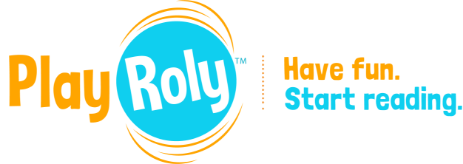Post-pandemic, millions of children are behind in reading, and their parents, teachers, and school districts are concerned. However, we are heartened to share some success stories in the world of literacy in British Columbia, Canada, where we live. Wonderful, passionate people are “being the change” they want to see—they warm our hearts and make us grateful to be part of this movement. For today’s blog, we’re happy to share some exciting science of reading news, starting with our own.
Play Roly’s free app is now live and accessible from our site!
Schools and parents can sign up to share Play Roly’s free start-to-read program!
Schools and preschool educators can now invite parents of pre-kindergarten and kindergarten students to Play Roly directly from our website. Here is an example of a parent invitation.
Once parents are signed up and using the app, school districts and kindergarten teachers can encourage parents to share their child’s Play Roly progress by sending screenshots of the ‘Track your skills’ chart in the app. This will not only increase parent engagement but also provide teachers with a snapshot assessment of each student’s progress with “phoneme blending” (Play Roly 1 and 2), a skill that research has shown a particularly strong positive correlation with reading ability in pre-reading children.
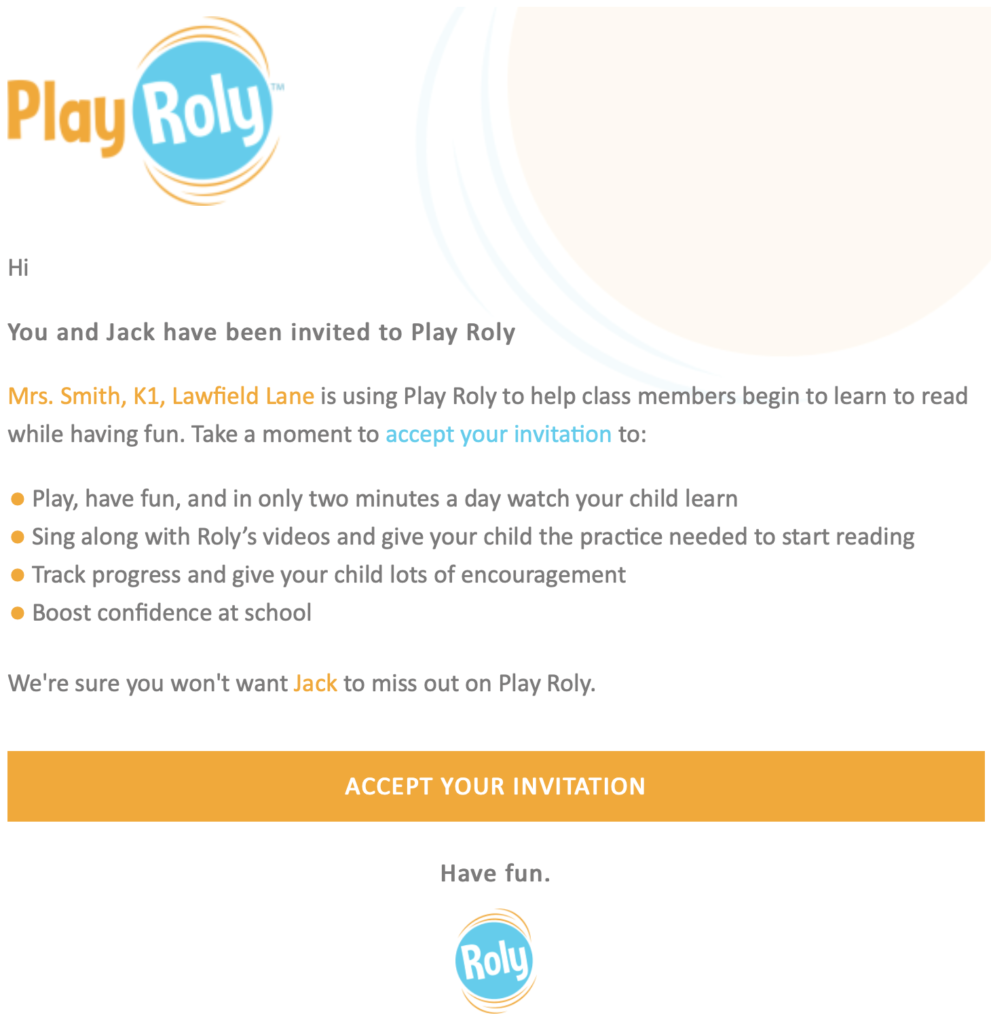
Most importantly, every new kindergarten student can be guided through Play Roly’s parent-friendly lessons, learning skills that enable a strong start to school. At the end of the program, kids get to practice their emergent reading skills with our free decodable books.
New Vancouver Island Literacy, Language, and Learning Graduate Diploma teaching the science of reading
We recently met on Zoom with teachers at Comox Valley Schools, Christina Majcher, School Psychologist, and Heather Willms, Learning Support. They shared with us the challenge almost all teachers face—they completed Bachelor’s and Master’s Degrees in Education without being taught about the science of reading or evidence-based reading skills and practices. This is unfair to teachers and to our most vulnerable students, who get left behind.
However, our Zoom session was full of good news! Driven by teachers, the implementation of science of reading practices is increasing on Vancouver Island and is already starting to reach students. Also, Heather is part of the team that will be teaching several courses in a new Literacy, Language, and Learning Graduate Diploma (LLLGD) program, launching July 2023 in the Faculty of Education at Vancouver Island University!
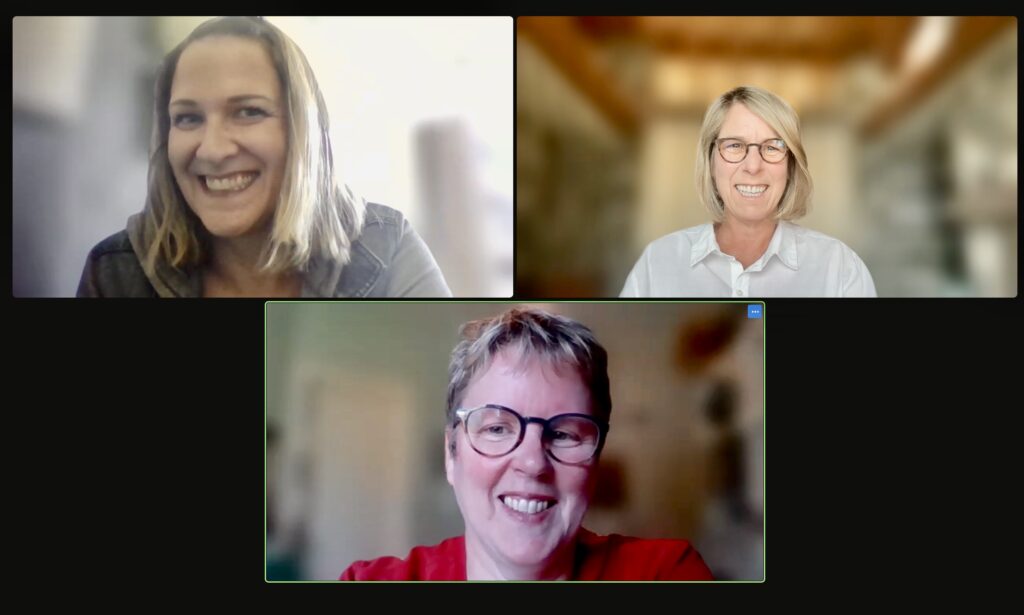
Very big news for BC teachers interested in graduate studies in the science of reading. Heather will leave her duties as Learning Support Teacher but stay connected with teaching colleagues throughout BC and Alberta and has many Pro D sessions booked for the upcoming school year. Heather was featured on CBC this week, discussing the positive momentum amongst teachers toward evidence-based practice.
Prince George Pro-D day showcases science of reading success in the classroom!
At the 2023 Prince George Spring Fling, about 1,000 teachers from across northern BC attended School District 57’s BC Teachers’ Federation (BCTF) Pro-D day event organized by Glen Thielmann at the end of April. We highly recommend the following Science of Reading presentations for ProD events for teachers and administrators:
Our Science of Reading Story: Transitioning from Balanced Literacy to Structured Literacy
Teachers Kathy Rice and Roberta Sutton of Prince George presented to a packed house in their hometown, sharing an informative presentation on their journey, resources, assessments, and reflections about foundational literacy instruction. They showed how they target and help struggling students using a structured literacy approach.
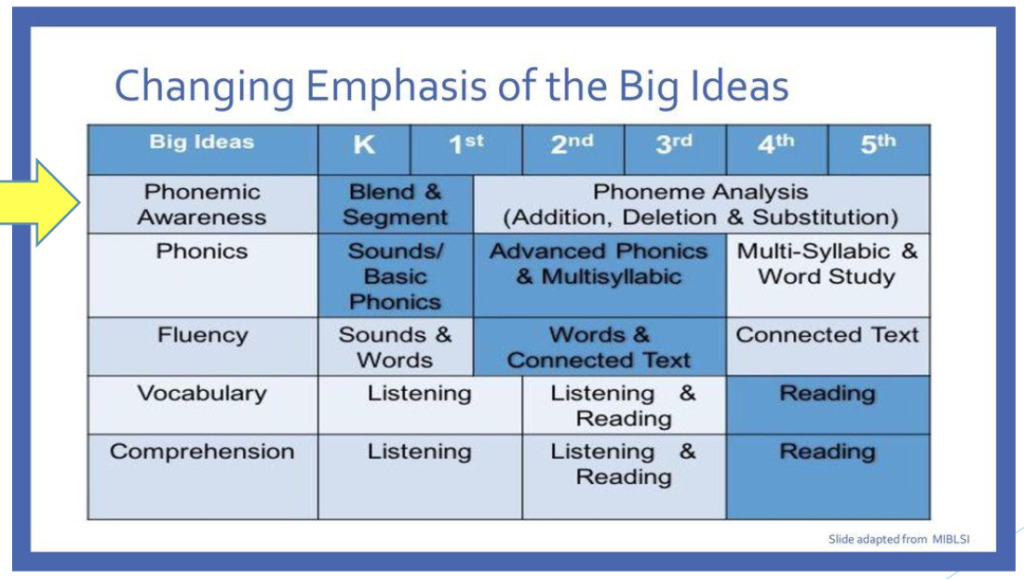
Science and Trauma Informed Literacy Education
School Psychologist and Education Faculty Member at UNBC in Quesnel, Melanie Baerg, along with Kindergarten and Grade 1 Teachers Erin Trask and Kate Lyon from Prince Rupert, BC, also gave a very well-attended and informative presentation on the importance of literacy development through a social justice lens.
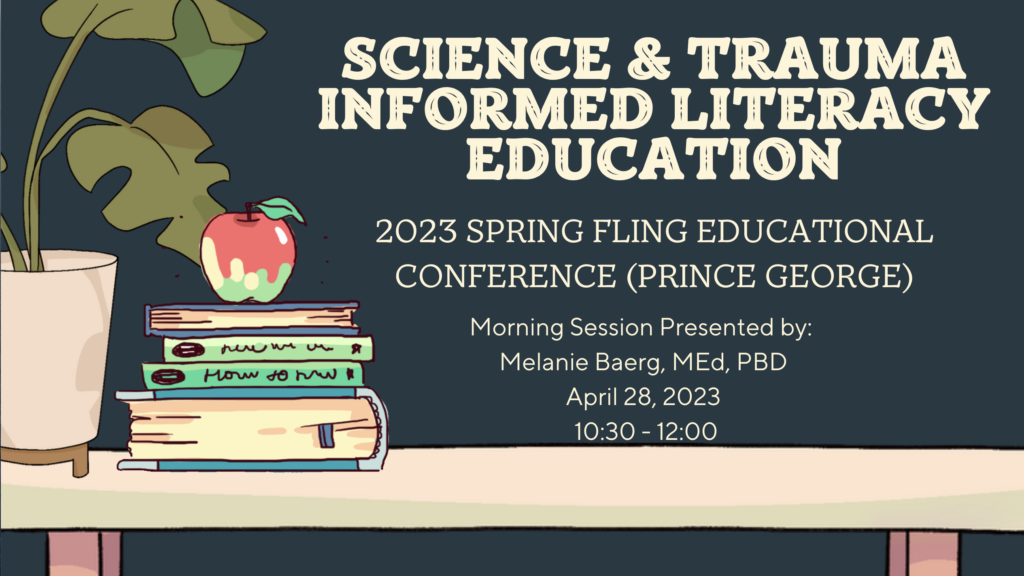
They explained how the human brain learns to read (and write) and the critical components of science and trauma-informed effective literacy instruction. This included many examples of this instruction from the classroom.
They are seeing very strong results for their kindergarten and grade 1 students, including those in challenging circumstances. Look at the AFTER chart below (all kids know letter names and sounds) for these kindergarten classes! Most of their young students are reading and writing.
BEFORE SCIENCE OF READING INSTRUCTION
Kindergarten, September 2022
Letter Name and Sound Assessment: 9/14 can name 8 or less letters (= high risk)
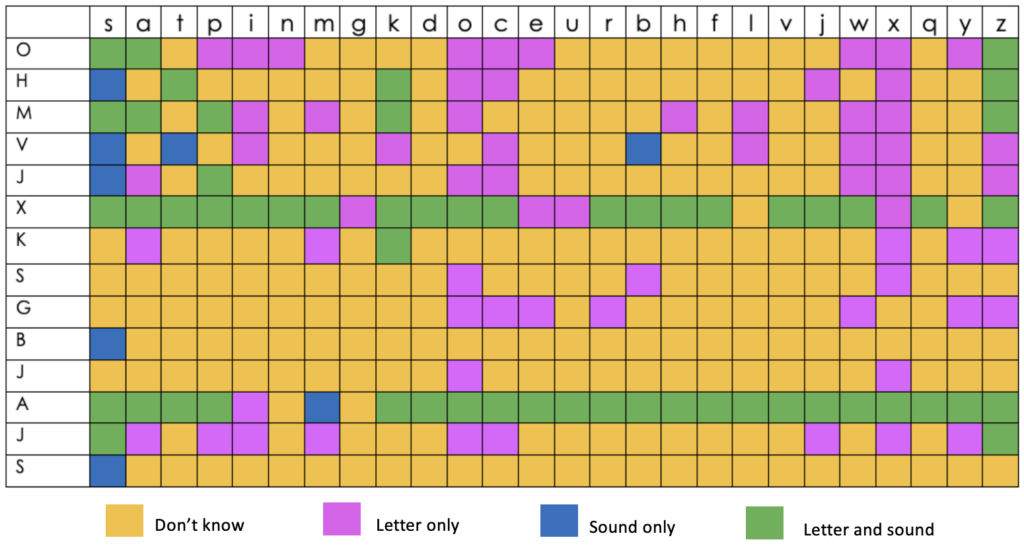
AFTER SCIENCE OF READING INSTRUCTION
Kindergarten, March 2023
Letter Name and Sound Assessment: all students (from September class) learned most or all letter names and sounds
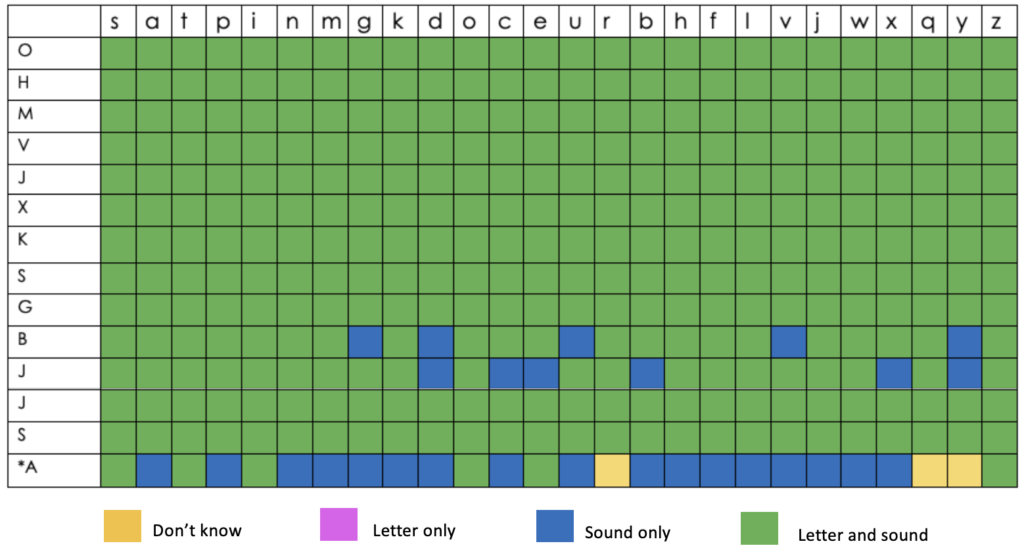
Presentations from Kate, Erin, Melanie, Linda, and others are available on Dr. Kathryn Garforth’s Right to Read Summer Symposium from 2022.
Pro-D day group dinner for the science of reading Facebook page
We were privileged to attend 2023 Spring Fling as an exhibitor and join fellow exhibitor Alicia Smith of Dyslexia Canada as well as several of the admins of the BC Science of Reading Facebook group for dinner. These admins volunteer an incredible amount of time and energy to manage this group of about 2,400 BC teachers whose purpose is to connect the research of how we learn to read to teaching practice. Their mission is to inform and deliver to teachers professional development in evidence-based practices.
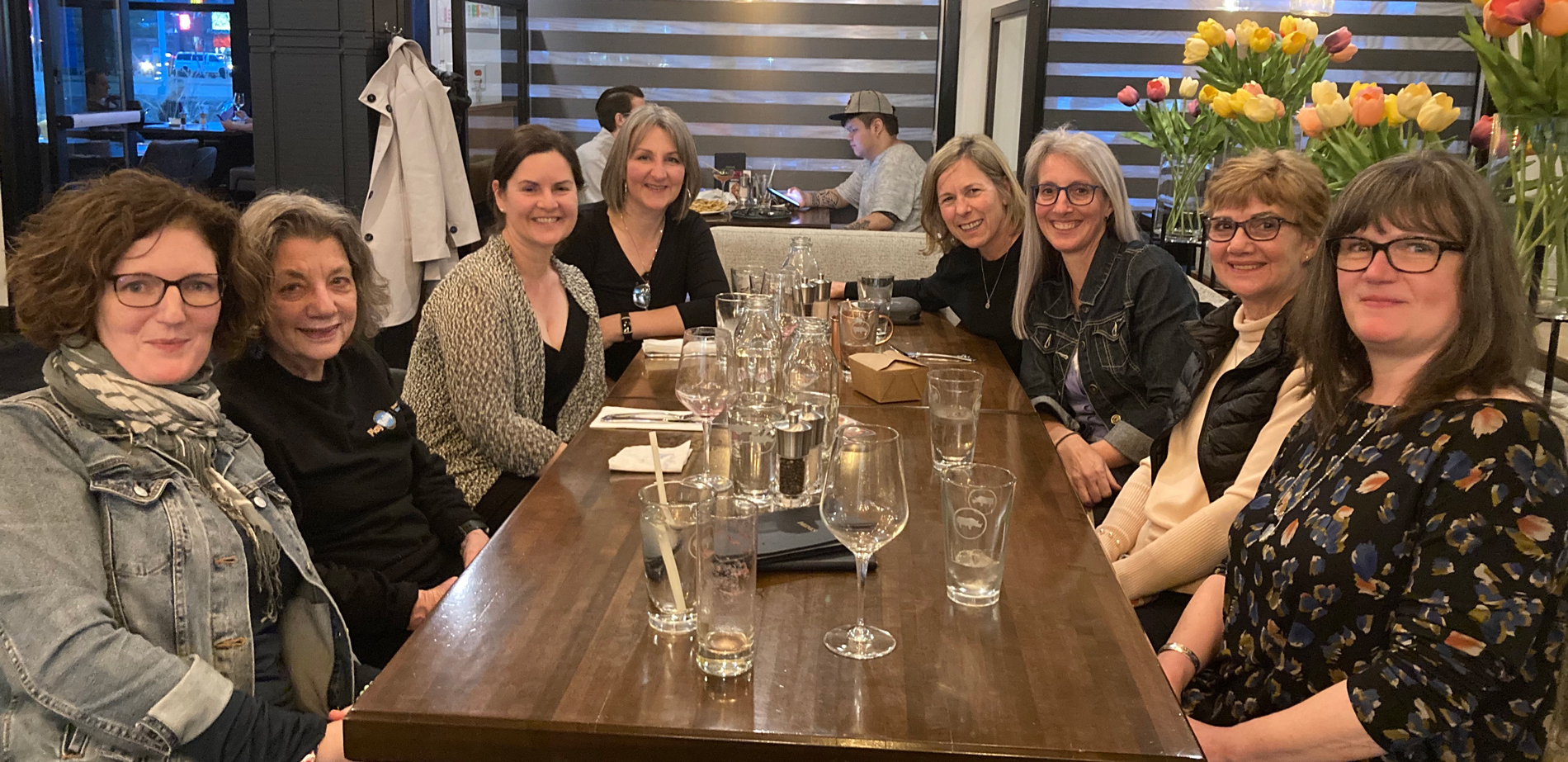
From left: Kate Lyon, Linda Siegel, Alicia Smith, Melanie Baerg, Lisa Sturdy, Kathy Rice, Audrey Plé, Erin Trask
Since that gathering in April, Kathy Rice has shared that Prince George teachers have followed this conference up in May with a gymnasium full of educators learning about Structured Literacy with the University of Florida Literacy Institute’s UFLI Foundations program. Also, Prince George French Immersion teachers received a presentation from Kim Lockhart from Ontario about structured literacy in French.
Also in May, Kate Lyon and Erin Trask presented (by Zoom) to teachers from SD43 in Coquitlam—a 17-hour drive south of their home in Prince Rupert.
Nice cross-geography collaboration BC Teachers!!
Science of reading activity in BC Parent Groups and BC School Trustees
In May, Dyslexia BC reported that motions from the North Vancouver School Board (SD44) and the Kootenay District Parent Advisory Council (DPAC) regarding Screening for Reading Difficulty in Kindergarten and Literacy and Reading Programs to align with the Science of Reading both passed at the AGMs of the BC School Trustees Association and the BC Confederation of Parent Advisory Councils.
Vancouver DPAC also hosted an excellent presentation by Alicia Smith of Dyslexia Canada in May
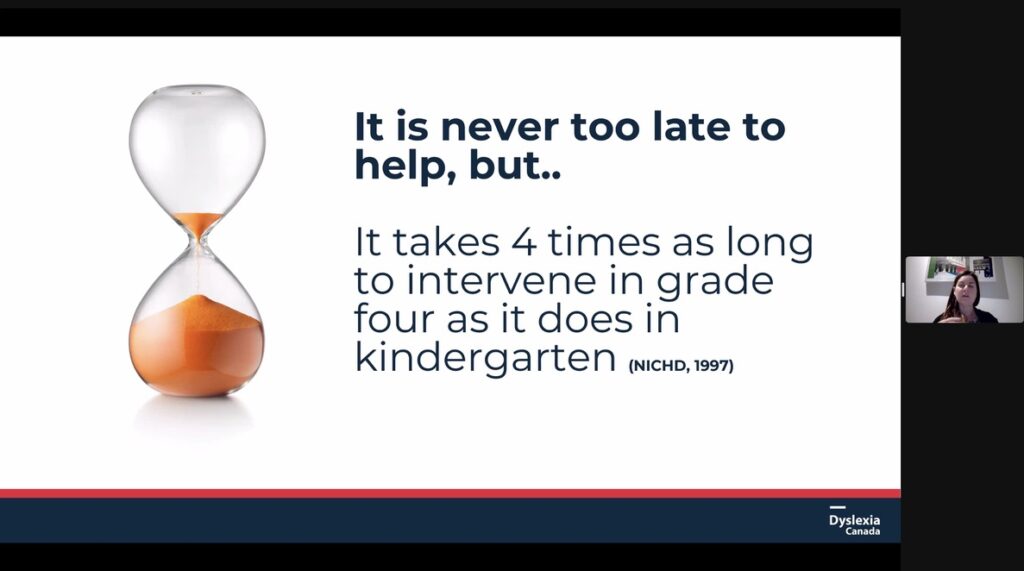
Parent advocacy is part of the influence toward a recent shift to science of reading instruction in the United States, discussed at length in this week’s June 6th podcast from the New York Times, The Daily
Play Roly research project is underway—new participants welcome
This photo (shared with permission) was taken on Mother’s Day from a video of one of our 5-year-old research participants doing Play Roly with his mom—he chose Roly’s sounds for her to guess the Roly-word he chose 💗💗💗. Our current research pilot of parent-submitted videos playing Roly with their child at home will assess early reading skills learned by doing all six Play Roly modules, including decoding.
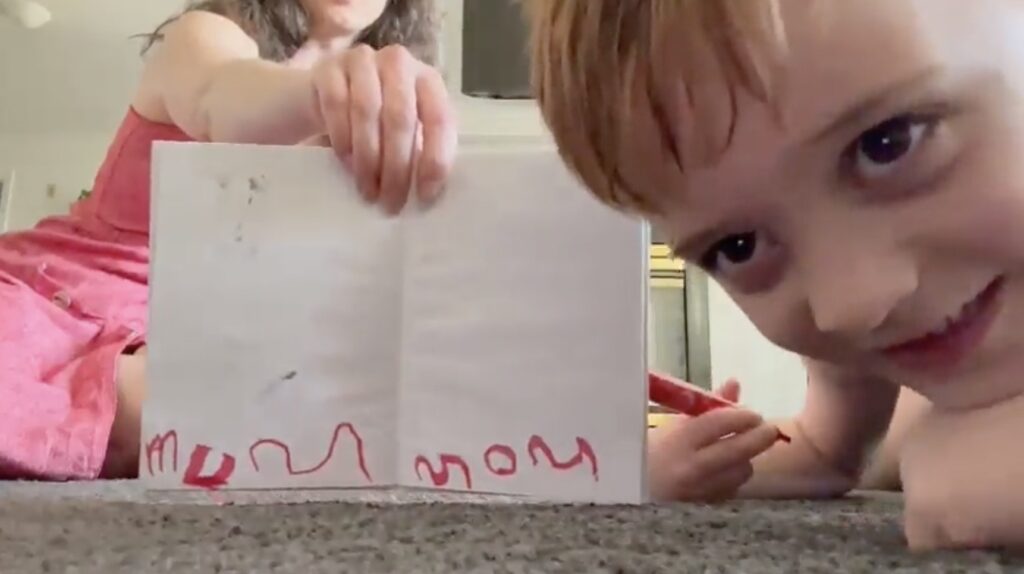
If you would like to participate, you can find more information here—we’d love to hear from you.
Interested in connecting and learning more?
Would you like to connect? Email us at roly@playroly.com to meet by Zoom or in person. We’d love to hear about your science of reading success story, or if your Pro-D day or conference is interested in Play Roly, we would love to share. Also, let us know how you are sharing or using Play Roly! All questions or feedback (positive or negative) is welcome—we plan to continuously tweak and improve Play Roly based on your input.
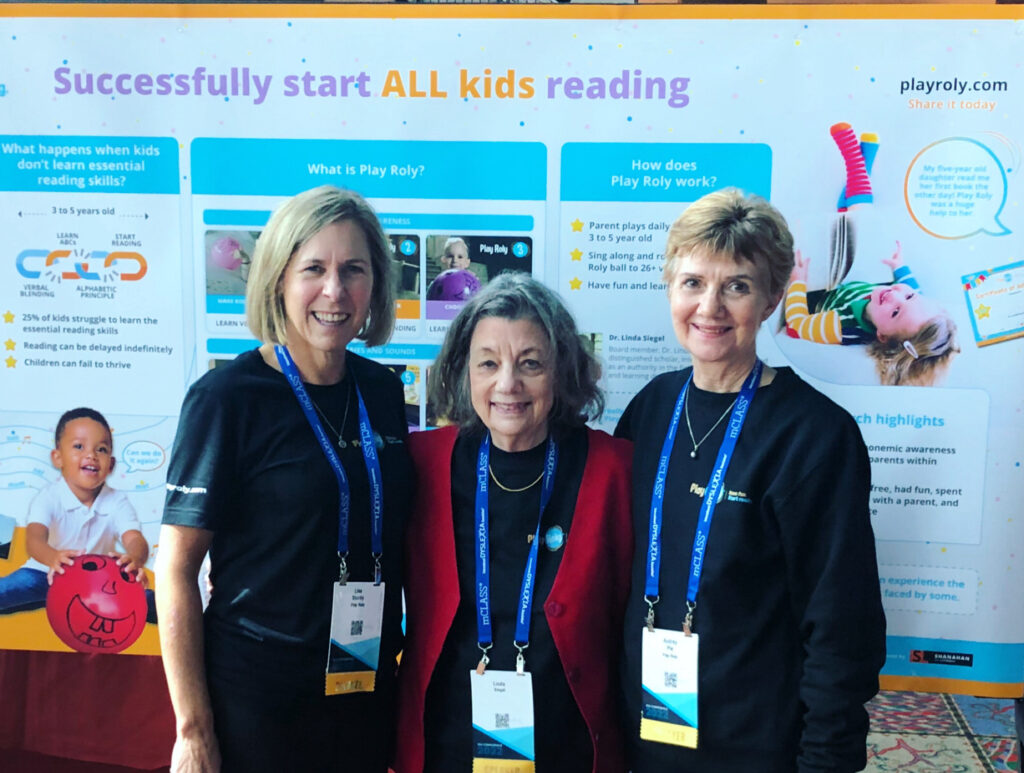
Play Roly team presenting at the International Dyslexia Association Conference, San Antonio, TX, November 2022
Authors
Lisa Sturdy, parent of a dyslexic child, wife of a dyslexic husband, co-founder of Play Roly, and Dr. Linda Siegel, Consultant to Ontario Human Rights Commission’s Right to Read Inquiry.
